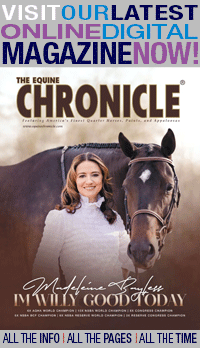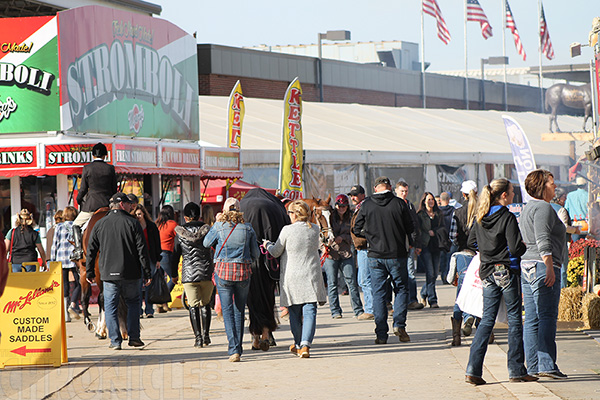Revision to Ban on Horses Entering Ohio (Applies to QH Congress)
Ohio Department of Agriculture (ODA) has announced new veterinary inspection requirements for horses entering Ohio. This applies to all horses, including those intending to participate in the All American Quarter Horse Congress. The intent is to prevent the spread of Vesicular Stomatitis (VSV).
State Veterinarian Dr. Tony Forshey has refined the requirements as such:
“All equine entering Ohio from a state where VSV has been diagnosed within the last seven days, or a state that contains a premises quarantined for VSV, shall be accompanied by a certificate of veterinary inspection (health certificate) dated within seven days of entry, containing the following statement, ‘All animals identified on the certificate of veterinary inspection have been inspected and found to be free from clinical signs of vesicular stomatitis.’ “
Horses from quarantined or infected premises are still banned from entering the state.
VSV is a viral disease that primarily affects horses, but can also infect cattle, swine, sheep, and goats. The disease causes blister-like lesions, which burst and leave open wounds. It is extremely painful to animals and can result in the inability to eat and drink and even lameness.
VSV is highly contagious, with biting insects being the most common method of transmission. Humans can also contract VSV by coming into contact with lesions, saliva, or nasal secretions from infected animals. In people, the disease causes flu-like symptoms such as fever, muscle ache, headache, and nausea.
Currently, VSV has been detected in Colorado, Nebraska, New Mexico, Texas, Utah, and Wyoming with confirmed or suspected cases in specific counties across those states. A current list of suspect and confirmed cases can be found in the U.S. Department of Agriculture’s weekly situation report.
For more information on the disease, visit the USDA’s VSV resource page.











